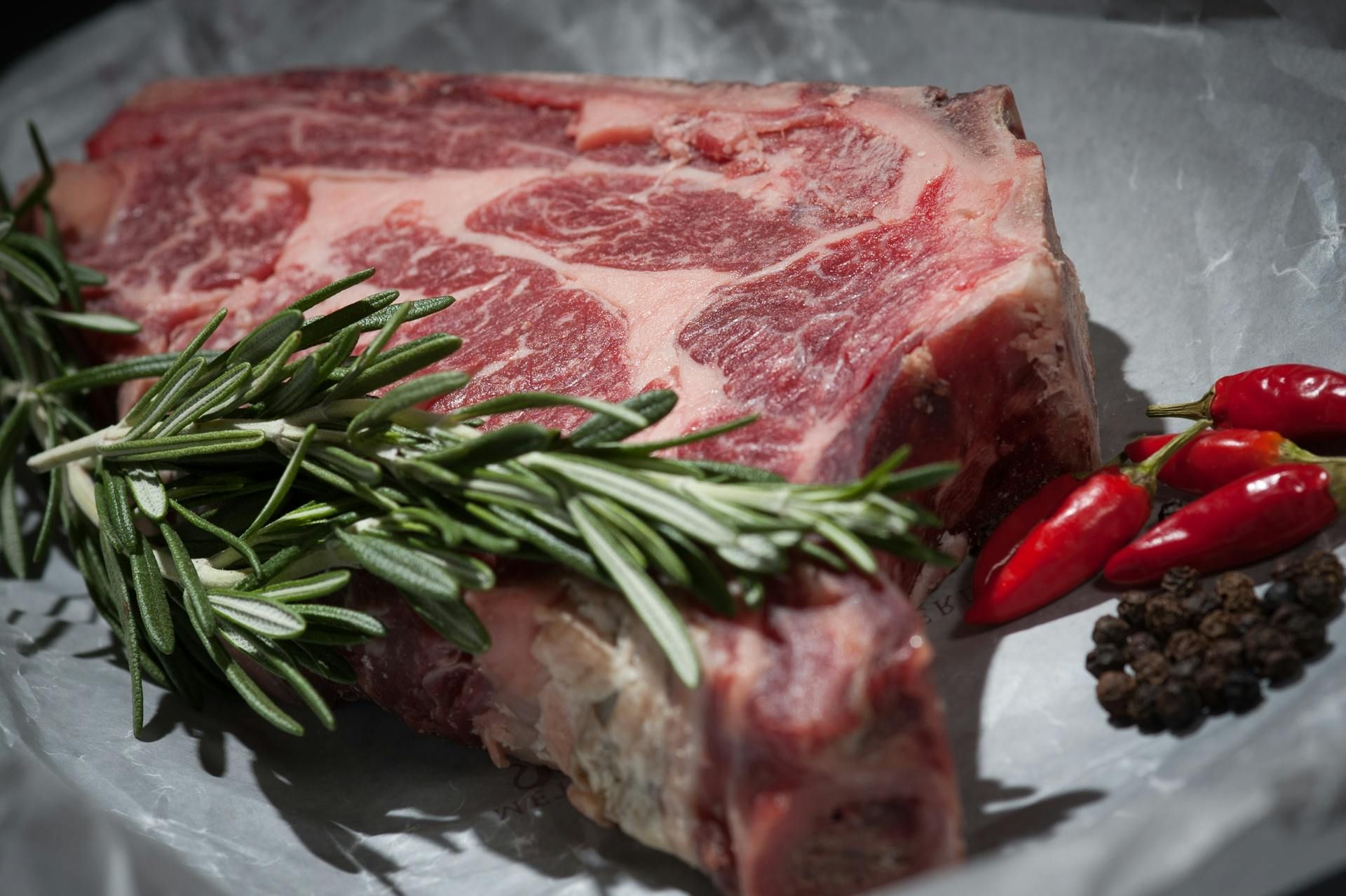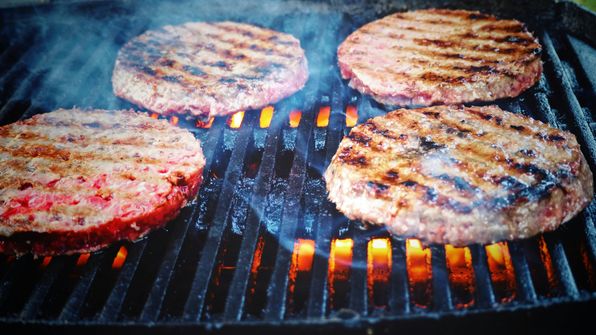
Social Success on the Carnivore Diet: Tips for Staying Committed at Gatherings and Restaurants
Social gatherings often mean a spread of carb-heavy foods and tempting desserts that can make sticking to the carnivore diet feel tricky. But with a b...

A diet where you can eat steak for breakfast, lunch, and dinner… Sounds like a meat lover’s dream, right? Welcome to the carnivore diet, where the motto is simple: “If it roars, moos, or oinks, it’s on the menu!”
But before you dash to the butcher, let’s sink our teeth into what this diet is all about, its potential benefits, and some meaty drawbacks.
The carnivore diet is as straightforward as it sounds—it’s all about consuming animal products and excluding almost everything else. Yes, that means no fruits, vegetables, grains, or legumes. The menu is rich in meat, fish, eggs, and certain dairy products (if you can tolerate them). Think of it as the polar opposite of a plant-based diet.
Proponents argue that our ancestors thrived as hunters and that a diet heavy in animal products is what our bodies are truly designed for. Whether you’re channeling your inner cavewoman or just curious about the hype, there are some interesting points to consider.

Many people turn to the carnivore diet for weight loss, and it often delivers. By eliminating carbs, the body shifts into a state of ketosis, burning fat for energy. A study published in the Journal of Clinical Endocrinology & Metabolism found that women on a very low carbohydrate diet lost more weight and body fat compared to those on a calorie-restricted low-fat diet over six months (8.5 kg vs. 3.9 kg, and 4.8 kg vs. 2.0 kg, respectively).
Another appealing aspect is the simplicity. Meal planning becomes a breeze when you only have to think about meat. No more counting calories or deciphering food labels. If it’s meat, you eat. This simplicity can be a huge relief for people overwhelmed by the complexities of other diet plans.
Some advocates claim that the carnivore diet can reduce inflammation and alleviate symptoms of autoimmune diseases. This could be due to the elimination of potentially irritating plant compounds. Research suggests that certain plant lectins and oxalates can trigger inflammation in susceptible individuals.
Fans of the diet often report better focus and mental clarity. It’s believed that stable blood sugar levels from a zero-carb diet can keep your brain on an even keel. A study in Neural Regeneration Research indicated that ketogenic diets could improve cognitive function and reduce neuroinflammation.
Protein and fat are incredibly satiating, meaning you might feel full and satisfied with fewer meals throughout the day. A study in the the Journal of Obesity & Metabolic Syndrome found that high-protein diets increase satiety and reduce overall calorie intake, which can be beneficial for weight management.

However, it’s not all steak and sunshine. While meat is rich in many nutrients, it lacks certain vitamins and minerals found in plant-based foods. Vitamin C, fiber, and phytonutrients are notable absentees in a carnivore diet. According to the Nutrients, vitamin C is crucial for immune function and skin health, and its absence can lead to scurvy if not addressed.
Transitioning to a meat-only diet can be tough on the digestive system. Common complaints include constipation, bad breath (thanks, ketosis!), and an increased risk of gut issues due to the lack of fiber. A study in the Nutrients highlighted the importance of dietary fiber for maintaining gut health and preventing constipation.
Sticking to the carnivore diet can be challenging in social settings. Imagine: you’re at a friend’s barbecue, and all you can eat is the burger patties—no buns, no sides, no fun. Social isolation and difficulty dining out are real concerns.
Eating only animal products can get monotonous. Even the most passionate meat lover might find themselves craving a crunchy salad or a juicy apple. Variety is important not just for mental satisfaction but also for ensuring a wide range of nutrients.
There are also concerns about the long-term health impacts of a meat-only diet. High cholesterol, heart disease, and other potential risks have been flagged by health professionals. The Harvard Medical School warns that diets high in saturated fats can increase the risk of cardiovascular diseases.

So, is the carnivore diet a roaring success or a dietary faux pas? Like any diet, it comes with its set of pros and cons. If you’re considering going full carnivore, it’s crucial to do your research, perhaps consult a healthcare professional, and listen to your body.
After all, while it’s fun to imagine channeling your inner cavewoman, we live in a world where variety is the spice of life. And sometimes, a little spice is all you need to make healthy eating enjoyable and sustainable.
Bon appétit (or should I say, happy hunting)!
A: The carnivore diet is a dietary regimen that consists entirely of animal products such as meat, fish, eggs, and certain dairy products. It excludes all plant-based foods, including fruits, vegetables, grains, and nuts. The idea is to focus on nutrient-dense animal products, which proponents believe can lead to various health benefits by eliminating potential dietary irritants and anti-nutrients found in plants.
A: Some women report benefits such as weight loss, improved mental clarity, increased energy levels, reduced inflammation, and better digestion. Additionally, the diet may help stabilize blood sugar levels and reduce symptoms of certain autoimmune conditions. However, individual results can vary, and it’s essential to consult with a healthcare professional before making significant dietary changes.
A: Yes, there are potential risks. The diet is highly restrictive and can lead to nutrient deficiencies, particularly in vitamins and minerals found in plant foods, such as vitamin C, fiber, and certain phytonutrients. Long-term adherence to the diet may also increase the risk of cardiovascular disease due to high saturated fat intake. Women may also experience hormonal imbalances, digestive issues, and an increased risk of kidney stones.
A: The carnivore diet can impact hormonal health in both positive and negative ways. Some women report improved hormonal balance and relief from issues like PCOS or irregular menstrual cycles. However, others may experience negative effects such as disrupted menstrual cycles or exacerbated hormonal imbalances due to the diet’s restrictive nature and potential nutrient deficiencies. It’s crucial to monitor your body’s response and consult with a healthcare provider.
A: To minimize the risk of nutrient deficiencies, women should focus on consuming a variety of animal products, including organ meats, which are rich in vitamins and minerals. Incorporating bone broth can also provide essential nutrients. Additionally, some women may consider taking supplements, such as vitamin D, magnesium, and omega-3 fatty acids, to fill potential gaps in their diet. Regular blood tests and consultations with a healthcare provider can help monitor nutrient levels.
A: Pregnant and breastfeeding women have increased nutritional needs, and the restrictive nature of the carnivore diet may not provide all the necessary nutrients for both the mother and baby. Nutrient deficiencies during pregnancy and breastfeeding can have serious health consequences. Therefore, it is generally not recommended for pregnant or breastfeeding women to follow the carnivore diet without close supervision from a healthcare professional. It’s essential to ensure a balanced intake of all necessary nutrients during these critical periods.

Social gatherings often mean a spread of carb-heavy foods and tempting desserts that can make sticking to the carnivore diet feel tricky. But with a b...

The carnivore diet is often seen as straightforward: eat meat, keep it simple. But adapting it seasonally can bring freshness, variety, and local flav...

The carnivore diet has become increasingly popular, but like any extreme dietary approach, it raises important questions—especially for women concerne...

The carnivore diet has gained attention globally, but women’s experiences and cultural approaches to animal-based eating vary widely depending on wher...

Living with Chronic Obstructive Pulmonary Disease (COPD) can make everyday activities feel like a marathon, especially for women who are juggling heal...